You notice a blue puff of smoke in your rearview mirror. That's a sign that your car is burning oil. Should you be worried? We have done some research and found answers. Please keep reading to find out why your car is burning oil and what can be done to fix it.
Your vehicle is burning oil because oil is where it should not be, indicating a damaged part within the combustion chamber or somewhere else in the engine. Reasons this could be happening to your vehicle include the following:
- Worn piston rings
- Worn valve seals
- Damaged head gasket
- Stuck PVC valve
- Oil drips
Once you notice blue smoke, you need to check your oil level. If you find that the oil level is low and you haven't seen any oil puddles where you park, then there's a good chance that your engine is burning oil. You mustn't ignore the issue. This will only lead to more extensive damage down the road.
Thankfully, some solutions are simple and inexpensive. Unfortunately, some remedies may require complex repairs that are expensive and time-consuming. We will walk you through a few potential problems and possible solutions to help you decide what needs to be done in your situation.
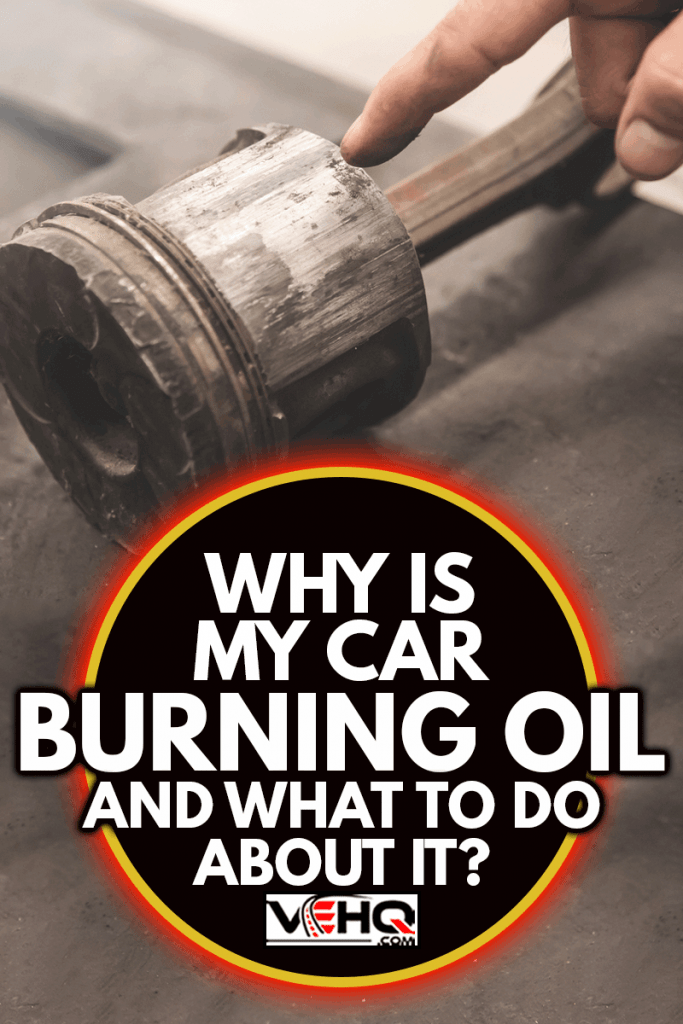
Reasons Why Your Car Is Burning Oil
There are a few places within the engine to start looking for unwanted oil. When you find the oil, you probably will also find a worn or damaged part. High heat, pressure, and friction combined with dirty oil eventually take a toll on an engine and its many components. Gaskets, rings, and seals are the most susceptible to wear, resulting in leaks.
Look near the combustion chamber to find the leak source causing the blue smoke coming from the exhaust system. Otherwise, you are looking for rogue oil that is dripping onto hot surfaces and burning off. Here are a few of the most common places to start checking.
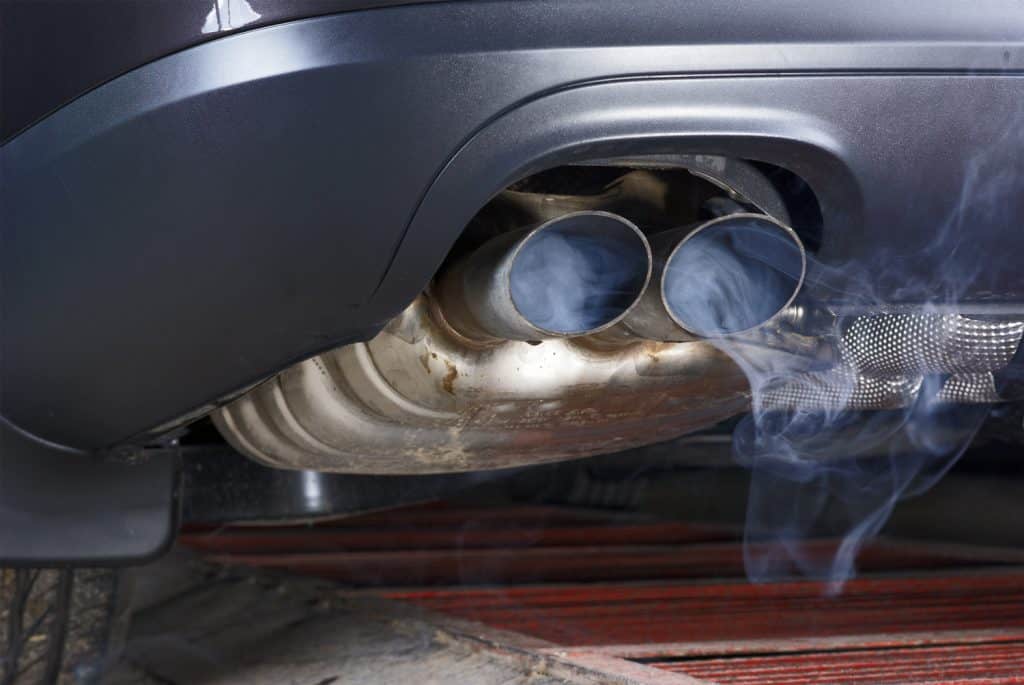
Worn piston rings
Piston rings experience wear over time. When this happens, the oil will begin to slip by getting onto the piston and into the combustion chamber where oil doesn't belong. As the combustion process occurs, the oil burns along with the fuel creating blue smoke.
At first, you may only notice the blue smoke when you first start the engine, then as you drive for a while, it disappears. This occurs because as the engine heats, the rings will seal themselves temporarily until the engine cools off again. Eventually, the rings will wear to the point that oil constantly leaks through, and you will see blue smoke consistently while driving.
If not addressed, your oil can become contaminated with fuel and chemical byproducts from the combustion chamber. Decreased oil quality means less engine protection, leading to damage to the bearings, loss of power, damaged catalytic converter, fouled spark plugs, or even a blown engine.
Worn valve seals
Valve seals keep oil from being sucked into the engine during the combustion process. When valve seals are worn, oil can slip through and end up puddling on the piston head. Once again, the oil finds its way into the combustion chamber along with the fuel.
With worn valve seals, you will see the tell-tale blue smoke at intermittent times, not consistently, like with worn piston rings. You may see blue smoke at engine startup while idling and during off-throttle braking.
Damaged Head Gasket
Head gaskets seal the cylinder head to the engine block, making it a critical part of the engine. Minor damage to the head gasket allows oil to drip onto the cylinders and burn off. More severe damage to the head gasket causes oil contamination through the mixture of oil and coolant, which can cause loss of compression and damage to the bearings.
With a blown head gasket, you will find yourself replacing oil often. When checking your oil, take notice of any inconsistencies. For example, if the oil is bubbly or you detect traces of water on the dipstick, you may have severe head gasket damage. You may also notice that your vehicle has a very rough idle. An unrepaired head gasket can easily lead to an undrivable vehicle.
Stuck Positive Crankcase Ventilation Valve
The positive crankcase ventilation valve, commonly referred to as the PCV, evacuates gases from the crankcase by releasing engine pressure into the intake manifold. If this valve becomes stuck, the pressure has to go somewhere, and the result is blown out seals or oil forced into the cylinders. If this is the issue, the valve will need to be replaced.
Oil Drips
When oil is leaking outside the engine, it can drip onto hot surfaces. This is much different than when the oil slips into the combustion chamber and burns with the fuel. With this type of oil burning, you will not see the blue smoke from the exhaust. Instead, what you will experience is the distinct smell of burning oil. Places to check for oil drips include the oil cap, oil pan, oil filter, oil cooling lines, or valve cover gasket.
What happens when your car burns oil?
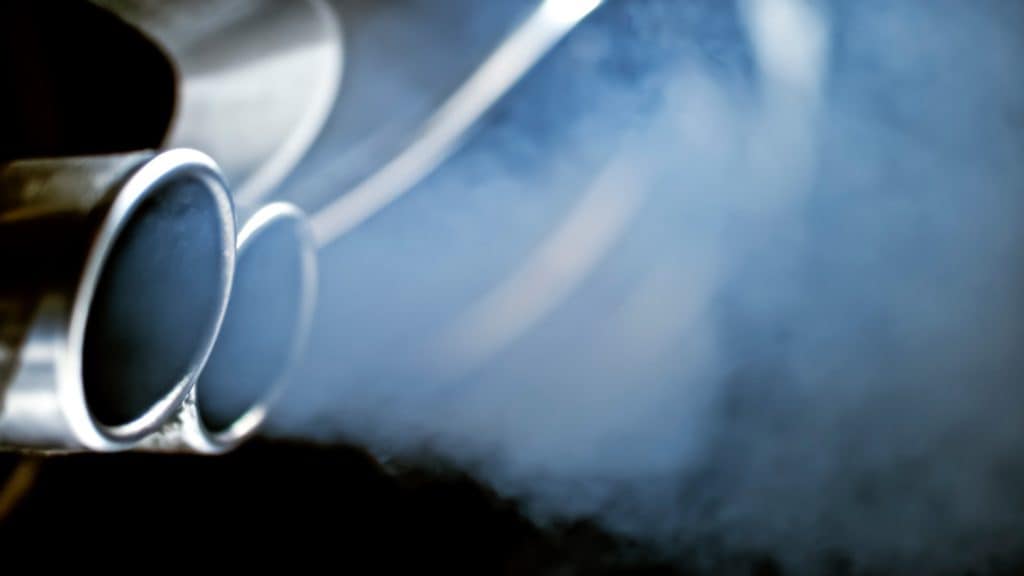
When your car burns oil, there's a good chance your oil levels may be getting too low. It might also mean that your oil is becoming contaminated, which reduces lubricating properties. If you know your car is burning oil, be sure to check your oil level frequently and immediately replace any missing oil.
Depending on the severity of oil loss, this could mean checking your oil frequently until your problem is fixed. If your engine is below the required oil level or circulating dirty oil, damage occurs that can eventually lead to complete engine failure.
Is it normal for an engine to burn oil?
A vehicle that burns oil is a common problem but should not be considered normal. It signals that there is a problem somewhere within the vehicle. The severity of the problem might range from simple to complex but still should never be ignored.
Vehicles that exceed 100,000 miles are more likely to begin experiencing oil burning because seals, rings, and gaskets may start breaking down from excessive wear. Therefore, extra care may be needed when your vehicle is considered high mileage.
In contrast, without proper maintenance, newer cars can also experience premature engine damage. If you discover your vehicle is burning oil, you need to find the problem and address it before you end up with bigger problems down the road.
The only time that it is normal for your engine to burn oil is if the oil has been accidentally spilled during an oil change or other type of repair. Spills can also occur if an oil cap or filter is put back on incorrectly.
If spilled oil is not properly cleaned up, the engine will burn off the excess oil as it heats. If this is the case, the leaking should stop once the part is back in its proper place, and oil-burning should stop once all the oil residue is burnt off. If it continues, then there may be a bigger problem that needs to be checked by a professional.
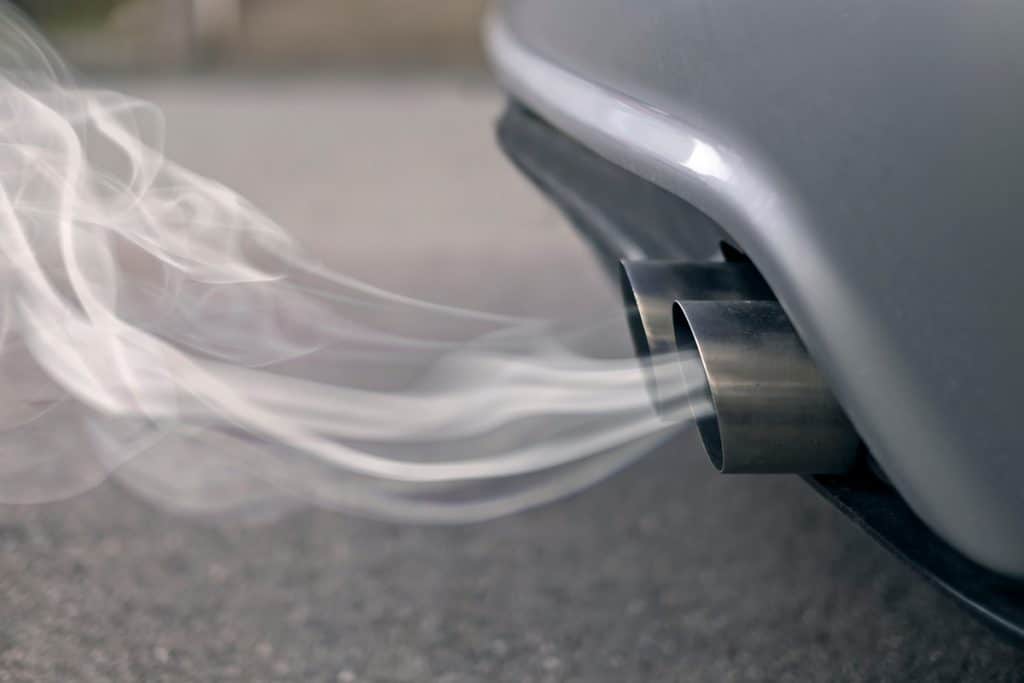
How do you fix a car that burns oil?
The best option is to take your car to a professional mechanic to find the cause and repair it. Unfortunately, there can be a considerable expense with this option, not to mention the time without your vehicle. Thankfully, this may not be your only option.
A less expensive but more temporary option is to use an engine oil additive or a stop leak product. This will solve your immediate problem and buy you some time. You may have to repeat the process periodically. Please understand, this is not a permanent solution, and eventually, the vehicle will need professional mechanic work.
Find Blue Devil Oil Stop Leak on Amazon.
Will thicker oil stop oil burning?
It is best to stick with the oil weight that is recommended for your vehicle. Newer engines have less tolerance for viscosity changes because the clearance space within bearings and other parts is purposefully designed to be much thinner.
Thicker oil will not flow quickly or evenly enough, leaving your engine unprotected. Your engine also has to work harder to pump more viscous oil, reducing fuel economy and overall engine performance. Finally, thicker oils lead to higher temperatures causing a quicker breakdown of the oil resulting in sludge deposits.
Using thicker oil might have been a "quick fix" that worked on older engines, but it will only cause more problems in today's advanced technology engines. If you are looking for a solution to plug the cracks and leaks within the system, an oil additive is a much better choice than changing the oil weight. There are many effective engine oil additives on the market that contain viscosity modifiers and friction modifiers.
Check out the top-rated Lucas Oil Stabilizer on Amazon.
Vehicles with high mileage are more likely to burn oil. Rather than taking a risk with a thicker oil, you should consider switching to a high-mileage synthetic oil. This type of oil contains additives that are specific to problems that vehicles with high mileage experience. There is much more benefit and less risk using high-mileage synthetic oil rather than thicker oil.
How long can an engine run without oil before damage?
Oil is a crucial part of your vehicle's engine functioning correctly. Engines generate high heat, and the metal parts need protection from friction and heat. Otherwise, the friction between the metal components eventually turns into grinding. If the grinding is allowed to continue, metal shavings and fragments are thrown into the engine, eventually causing damage.
Oil is a lubricant that filters out dirt and dust particles and creates a barrier that reduces friction and protects the engine components. It does this by creating what is known as a hydrodynamic wedge. If oil is missing or even low, there is going to be damage to the engine. That is why vehicles that leak or burn oil need maintenance quickly. An engine without oil can run for approximately 30 minutes or even less before it fails.
Summary
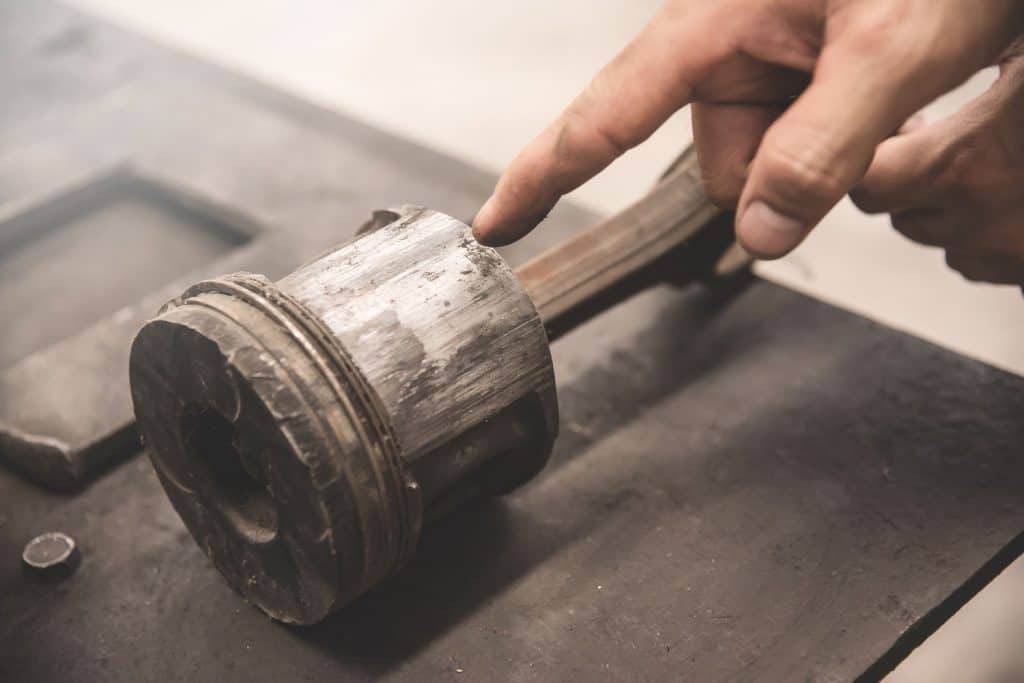
Oil is vital to the life of your vehicle's engine. Without it, the engine will fail. If your vehicle's engine is burning oil, you must address the problem, or you could find yourself walking.
For more information about which oil is best, check out this article: 10 Top Motor Oil Brands - How to Choose Yours
If you wonder about that quart of oil you found in your garage, read Does Car Engine Oil Expire?


